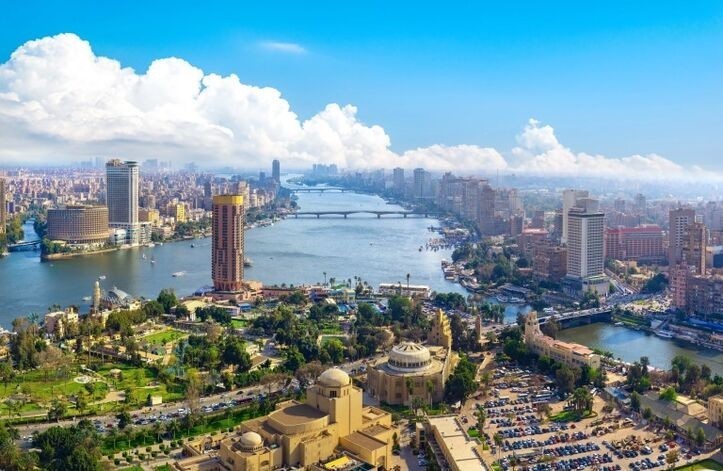
Discovering Egypt Travel Guide Ancient Wonders Tours Itineraries
Discovering Egypt is a journey through one of the world’s most fascinating civilizations, where ancient history meets vibrant modern culture. From the legendary pyramids to the tranquil waters of the Red Sea, Egypt offers unforgettable experiences for every traveler. Whether you are planning cultural sightseeing, a relaxing holiday, an adventurous vacation, or luxury travel packages, this timeless destination promises memories that last a lifetime.
With diverse landscapes, historic treasures, and world-class hospitality, Egypt continues to attract millions of visitors seeking enriching tours in Egypt and romantic honeymoon vacations.
Why Discovering Egypt Should Be on Your Travel List
Egypt is not just a destination; it is an open-air museum filled with wonders that date back thousands of years. The Great Pyramids of Giza, the Sphinx, the temples of Luxor, and the tombs of the Valley of the Kings showcase remarkable achievements of ancient engineering and art.
Beyond history, Egypt offers stunning beaches, colorful coral reefs, desert adventures, bustling bazaars, and warm hospitality. Travelers can combine Egypt cultural sightseeing with luxury resorts, making Egypt ideal for families, couples, and solo explorers alike.
Many travelers choose Egypt for affordable yet high-quality holiday packages that include guided tours, comfortable accommodations, and convenient transportation.
Top Places to Visit When Discovering Egypt
Egypt’s attractions are spread across the country, offering a perfect blend of ancient heritage and modern leisure.
Cairo and Giza
Cairo is the heart of Egypt, home to the Egyptian Museum, Islamic Cairo, and lively local markets. Nearby Giza hosts the iconic pyramids and the Great Sphinx, essential highlights for any sightseeing itinerary.
Luxor and Aswan
Often described as the world’s greatest open-air museum, Luxor features Karnak Temple, Luxor Temple, and the Valley of the Kings. Aswan, located along the Nile, is famous for its peaceful atmosphere, Nubian culture, and beautiful river views.
Nile cruises between Luxor and Aswan are among the most popular vacation experiences, combining relaxation with historical exploration.
Red Sea Resorts
Destinations such as Sharm El Sheikh and Hurghada offer crystal-clear waters, vibrant coral reefs, and luxury beach resorts. These cities are perfect for snorkeling, diving, and relaxing holidays after cultural tours.
Best Experiences in Egypt
Travelers visiting Egypt can enjoy a wide range of activities that suit different interests and budgets.
Cultural and Historical Tours
Guided tours of temples, tombs, and museums provide deep insights into ancient Egyptian civilization. Professional guides bring history to life, making sightseeing educational and inspiring.
Desert Adventures
From quad biking in the Sahara to camping under the stars, Egypt’s deserts offer thrilling experiences. These adventures are often included in customized travel packages.
Nile Cruises
A cruise along the Nile is one of the most relaxing ways to explore Egypt. It combines luxury accommodation, fine dining, and daily guided sightseeing tours.
Romantic Getaways and Honeymoon Vacations
Egypt is also an excellent choice for honeymoon vacations. Couples enjoy luxury resorts, sunset felucca rides, private tours, and romantic dinners overlooking the Nile or the Red Sea.
When Is the Best Time to Discover Egypt?
The best time to visit Egypt is from October to April, when temperatures are mild and ideal for sightseeing and outdoor tours. Summer months can be very hot, especially in southern regions such as Luxor and Aswan, but Red Sea resorts remain popular year-round.
Planning your travel during the cooler months ensures a comfortable experience and allows you to enjoy both cultural attractions and beach activities.
Travel Costs and Holiday Packages in Egypt
Egypt is known for offering excellent value for money. Travelers can find a wide range of vacation packages, from budget-friendly tours to luxury all-inclusive holidays.
Packages often include airport transfers, hotels, guided sightseeing tours, transportation, and some meals. Special honeymoon vacation packages offer private experiences, spa treatments, and upgraded accommodations.
Booking through a professional travel agency in Egypt helps ensure smooth logistics, safety, and access to the best local experiences.
Practical Tips for Discovering Egypt
- Dress modestly when visiting religious sites.
- Stay hydrated, especially during sightseeing tours.
- Use licensed guides for historical attractions.
- Carry small cash for local markets and tips.
- Respect local customs and photography rules.
Final Thoughts
Discovering Egypt is an unforgettable adventure filled with history, culture, and natural beauty. Whether you are interested in ancient temples, relaxing beach holidays in Egypt, exciting desert tours, or romantic honeymoon vacations, Egypt offers something truly special.
With well-designed Private Tour packages, professional guides, and diverse landscapes, Egypt continues to be one of the most rewarding destinations for global travelers seeking meaningful and memorable experiences.

Frequently Asked Questions (FAQ)
- Is Egypt safe for travel and sightseeing?
Yes, Egypt is generally safe for tourists when using licensed guides and organized tours. Major cities and attractions maintain strong security for visitors.
- How many days are enough to discover Egypt?
A minimum of 7 to 10 days is recommended to explore Cairo, Luxor, Aswan, and enjoy a Red Sea vacation comfortably.
- Are Egypt travel packages expensive?
Egypt offers affordable travel packages compared to many destinations, including budget tours, luxury holidays, and special honeymoon vacation options.
- What should I wear while traveling in Egypt?
Wear light, breathable clothing, comfortable shoes for sightseeing, and modest outfits for religious sites. Swimwear is suitable at resorts and beaches.
- Is Egypt good for honeymoon vacations?
Yes, Egypt is perfect for honeymoon vacations, offering romantic Nile cruises, luxury resorts, private tours, and beautiful Red Sea sunsets for couples.



